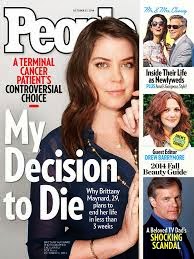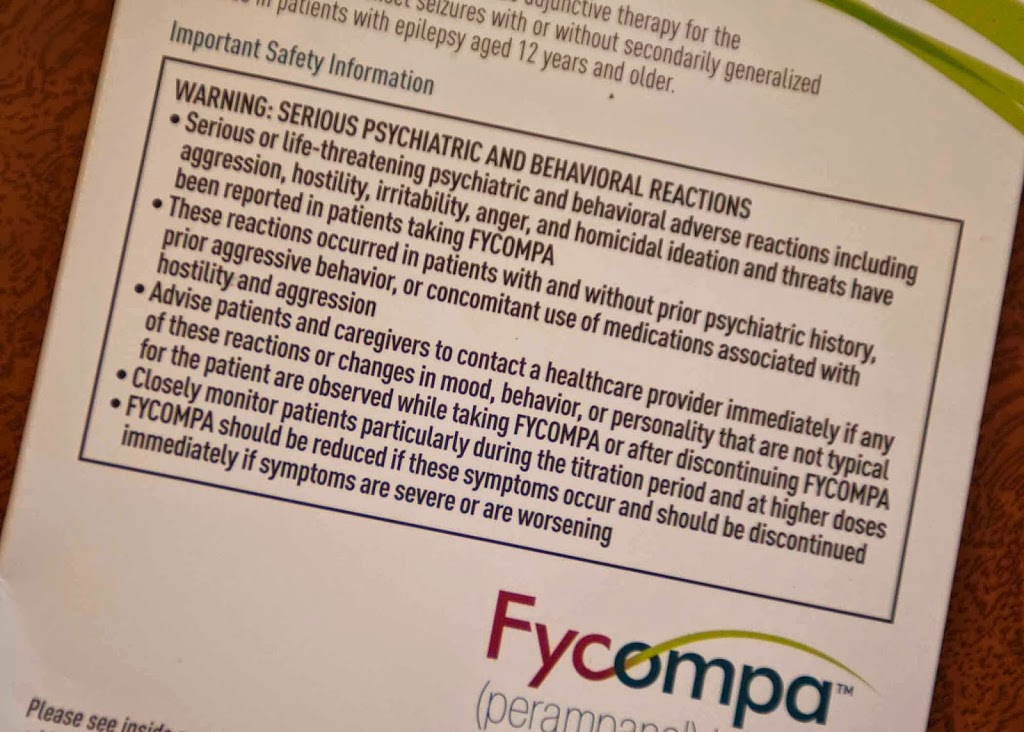To Live or Die? That is the Question.

When a surgeon plunders through your brain like an unorganized sock drawer, strange and terrifying things tend to happen. The only thing worse is if the surgeon plunders around only to realize that they can’t correct the problem.
This is what happened to Brittany Maynard.
Like Dan, she was diagnosed with brain cancer and had surgery to remove the tumor. But, unlike Dan (knock on wood), the tumor came back. With a vengeance. This type of cancer is hateful. It can double in size every two weeks and shape shift to eventually outsmart every drug you throw at it. The only mainstream medical answer available for glioblastoma is to slow it down through chemotherapy and radiation but these actions will not stopthe cancer. After looking at the options, Brittany chose not to destroy the quality of the life she had left. Speaking of quality, for those of you fortunate enough not to be versed in the world of cancer care, radiating your entire brain, which is what doctors recommended for Brittany, and quality of life, do not go hand in hand. Radiation has short and long term devastating consequences that leave your grey matter looking like an H & M t-shirt after three washings. Not what I call quality. Due to the treatment options that would only prolong her battle with cancer and the brutal way in which she would probably slowly die, Brittany chose to end her own life.
 |
| Safety warning on one of Dan’s four seizure meds…I’ve hidden the knives! |
Though Brittany’s suffering and consequent suicide is heartbreaking, her situation and choice to end her life on her own terms in the wake of brain cancer is neither shocking nor unique. It is sad to even write these words because it shows the state of my tired jaded brain. At least now, thanks to Brittany and her choice to make her assisted suicide public, I and others can talk about what is usually too taboo to bring up in polite conversation. In fact one of the most shattering experiences I’ve had thus far, dealt with suicide and there was no one that I could talk to about it. It was such a heavy, crushing, catastrophic kick to my non-existent balls that I did not have the heart to mention it to anyone else. As Dan lay in ICU in a dope happy postoperative slumber, I did exactly what the neurosurgeon told me not to: I googled stage IV brain cancer. And thisis the conversation that I stumbled upon:
Subject: Re: (BRAINTMR) Assisted Suicide
Dear Friends,
My family and I are much aware of the need sometimes for an assisted ending. However a gun shot may kill a person quickly it leaves one heck of an ugly mess for those alive to see and cleanup…There are many other cleaner ways to die.
Response I: Another method is to refuse food or liquid…
Response II: A shot to the head combines the maximum reliability, shortest duration (in which to change your mind and endure agony) and minimum pain. With other methods that last much longer, you may change your mind and attempt to halt or reverse the operation, in which case you will endure more agony. An instant death is the best way. I believe that a shot in the head delivers instant unconsciousness and beats any other method that a non-medic might try at home. For good measure, if you did not trust your shooting skills, you could overdose and then shoot yourself in the head, just like Hitler did.
Response III: I have determined the best method, bullet in the head.
Even now, a year and eight months after reading this for the first time, I still feelit. My heart pounds. My palms sweat. I want to puke. I can’t breathe. When I first read it, I couldn’t imagine what could be so terrible about brain cancer that it would lead to someone choosing a bullet instead of battling it out. Now I do. But at least, thanks to Brittany, I can talk about it. Dan can talk about it. In fact, others bring up Brittany, which gives all of us dealing with this crappy cancer a space to express the realities, our fears and our hopes for the future.
For those dealing with glioblastoma, quality of life is not just a catch phrase spurring conversations about the walkability of your city or the number of electric car charging stations. It is a measuring stick for choosing to live or allowing yourself to die. With every seizure. With every drug that destroys memory and concentration. With every pounding unbearable headache. What extent will we go just to claim our little space on this beautiful spinning blue ball?
So thank you Brittany. Though this topic will never be less than devastating to discuss, you have opened the door for the questions that need to be asked. And sometimes, just being able to talk about something difficult, might be enough to change the course of the future. As we tumble headlong into the realities of medicine capable of keeping us from dying but incapable of healing, maybe it is time to slow down and think about one of the primary lessons of the great spiritual leaders and philosophers:
There is more to living, than just being alive.


